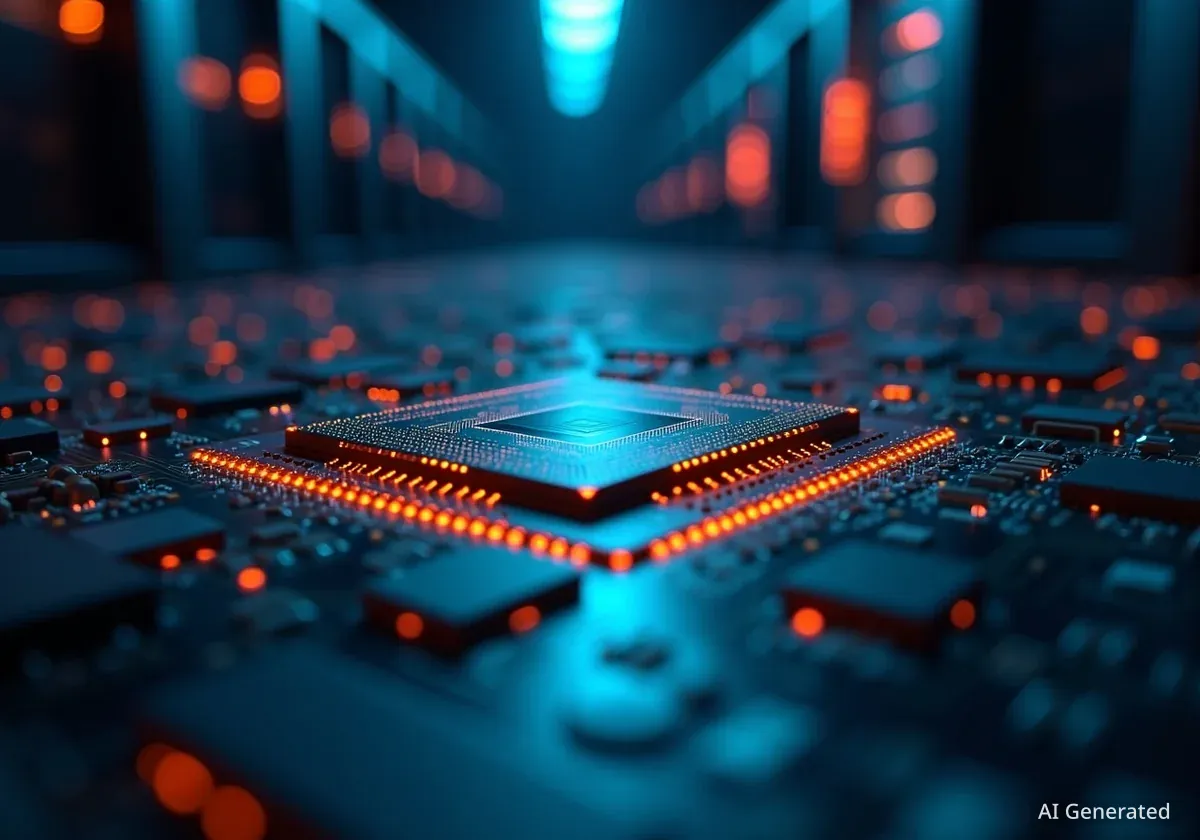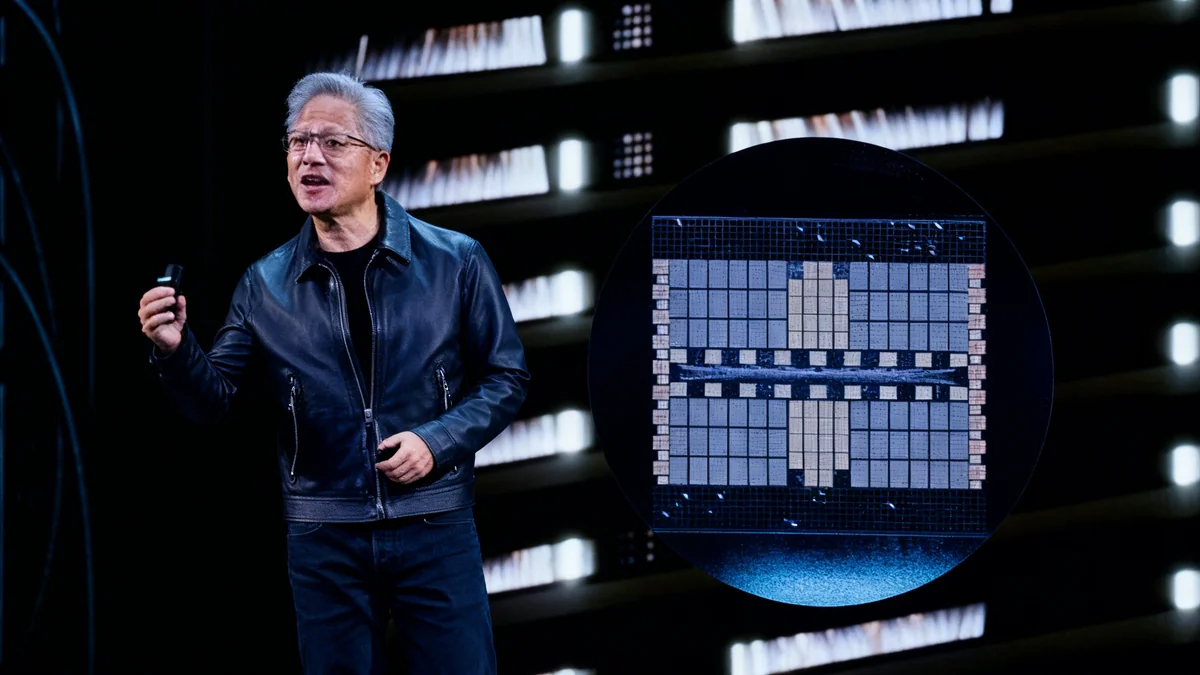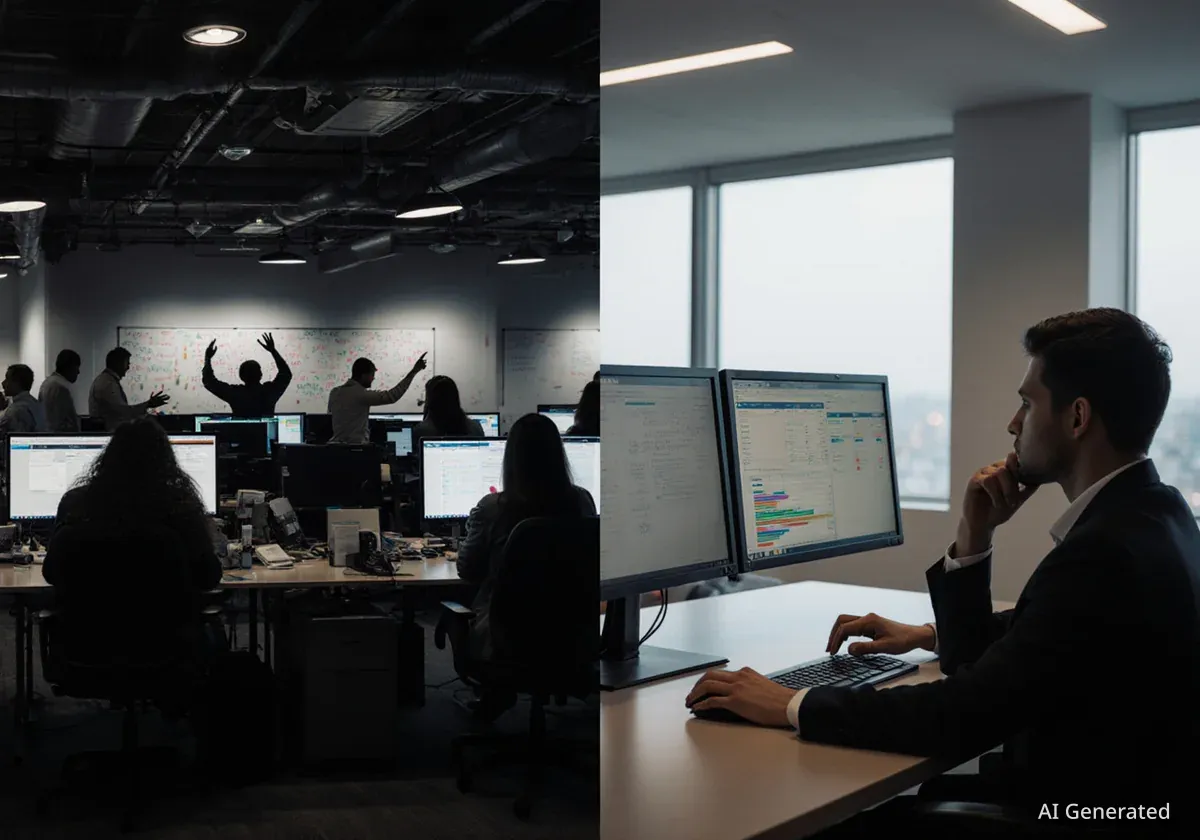OpenAI is reportedly in discussions with SoftBank Group to explore the development of custom artificial intelligence chips. This initiative aims to reduce OpenAI's reliance on current market suppliers and manage the high costs associated with running advanced AI models.
The collaboration could involve Arm, the chip design firm majority-owned by SoftBank, to create specialized semiconductors tailored for OpenAI's technology. Such a move reflects a growing industry trend among major AI companies to gain more control over their hardware infrastructure.
Key Takeaways
- OpenAI is in talks with SoftBank to develop its own custom AI accelerator chips.
- The primary goals are to reduce dependency on current chip suppliers like Nvidia and lower operational costs.
- The potential partnership could leverage the chip design expertise of Arm, which is majority-owned by SoftBank.
- This initiative is part of a broader industry movement where tech giants like Google and Amazon are creating their own specialized silicon.
The Drive for In-House Silicon
The demand for powerful processors capable of training and running large language models has surged dramatically. Currently, the market is dominated by a few key players, creating supply chain vulnerabilities and high operational expenses for AI companies.
OpenAI's CEO, Sam Altman, has publicly expressed concerns about the scarcity and cost of the advanced GPUs required for the company's research and products like ChatGPT. Developing proprietary hardware is a strategic step to address these challenges directly.
By designing its own chips, OpenAI could optimize hardware specifically for its AI algorithms. This can lead to significant improvements in performance and energy efficiency compared to using general-purpose processors. A custom solution would give the company a competitive edge in the rapidly evolving AI landscape.
Why Custom Chips Matter
General-purpose GPUs, while powerful, are not always the most efficient solution for specific AI workloads. Custom-designed chips, often called ASICs (Application-Specific Integrated Circuits), can be built from the ground up to perform a narrow range of tasks with maximum speed and minimal power consumption. This is why companies like Google (TPU) and Amazon (Trainium/Inferentia) have invested billions in their own silicon projects.
Potential Roles of Key Partners
The discussions reportedly involve several major technology firms, each bringing unique capabilities to the potential venture. The structure of the collaboration is crucial to its success.
SoftBank and Arm's Strategic Position
SoftBank, through its majority ownership of Arm Holdings, is central to these talks. Arm does not manufacture chips but licenses its highly efficient processor architecture to hundreds of companies worldwide. Its designs form the basis of nearly all smartphone processors and are increasingly used in data centers and AI applications.
A partnership would likely involve OpenAI licensing Arm's architecture to build a custom chip. Masayoshi Son, SoftBank's CEO, has been a vocal proponent of advancing AI technology, and this initiative aligns with his long-term vision for the industry.
Market Dominance of Nvidia
Currently, Nvidia holds an estimated 80% to 95% market share in AI chips. The company's GPUs have become the industry standard for training large AI models, giving it significant pricing power and influence over the direction of AI hardware development.
Broadcom's Potential Involvement
Reports also suggest that Broadcom could be part of the effort. Broadcom is a leader in designing and manufacturing custom silicon for major technology companies. The company has a proven track record, having worked with Google on its Tensor Processing Units (TPUs) and with Meta on its custom AI chips.
If involved, Broadcom could serve as the crucial design and manufacturing partner, helping to translate OpenAI's requirements and Arm's architecture into a finished, high-performance product.
Navigating the High Cost of Chip Manufacturing
Developing a new, cutting-edge semiconductor is an extremely expensive and complex undertaking. The costs can easily run into the hundreds of millions or even billions of dollars, from initial design to final production.
Furthermore, building and operating chip fabrication plants, or "fabs," is a monumental investment. Sam Altman has reportedly been seeking substantial funding from global investors, highlighting the immense capital required for such a project. Some estimates suggest that establishing a comprehensive chip manufacturing network could cost trillions of dollars over several years.
"The world needs more AI infrastructure... far more than people are currently planning to build," Altman stated earlier this year, underscoring the scale of the hardware challenge facing the industry.
This high barrier to entry is why many companies that design chips, known as "fabless" companies, outsource the actual manufacturing to specialized foundries like Taiwan Semiconductor Manufacturing Company (TSMC) or Samsung.
A Widespread Industry Trend
OpenAI's exploration of custom hardware is not happening in isolation. It is part of a significant strategic shift across the technology sector, as companies seek to vertically integrate their AI operations.
This trend includes several major players:
- Google: A pioneer in this area, Google has been developing its own Tensor Processing Units (TPUs) for nearly a decade to accelerate AI tasks in its data centers.
- Amazon: Through its Amazon Web Services (AWS) division, the company offers its own custom Trainium (for training) and Inferentia (for inference) chips as alternatives to Nvidia GPUs.
- Microsoft: A key partner and investor in OpenAI, Microsoft has also developed its own AI accelerator, the Maia chip, to power its cloud services.
- Meta: The parent company of Facebook has developed its own series of custom chips to handle its massive AI workloads for content ranking, recommendations, and generative AI features.
By pursuing its own silicon, OpenAI joins these giants in seeking greater control over its technological destiny, aiming to create a more stable and cost-effective foundation for building the next generation of artificial intelligence.





